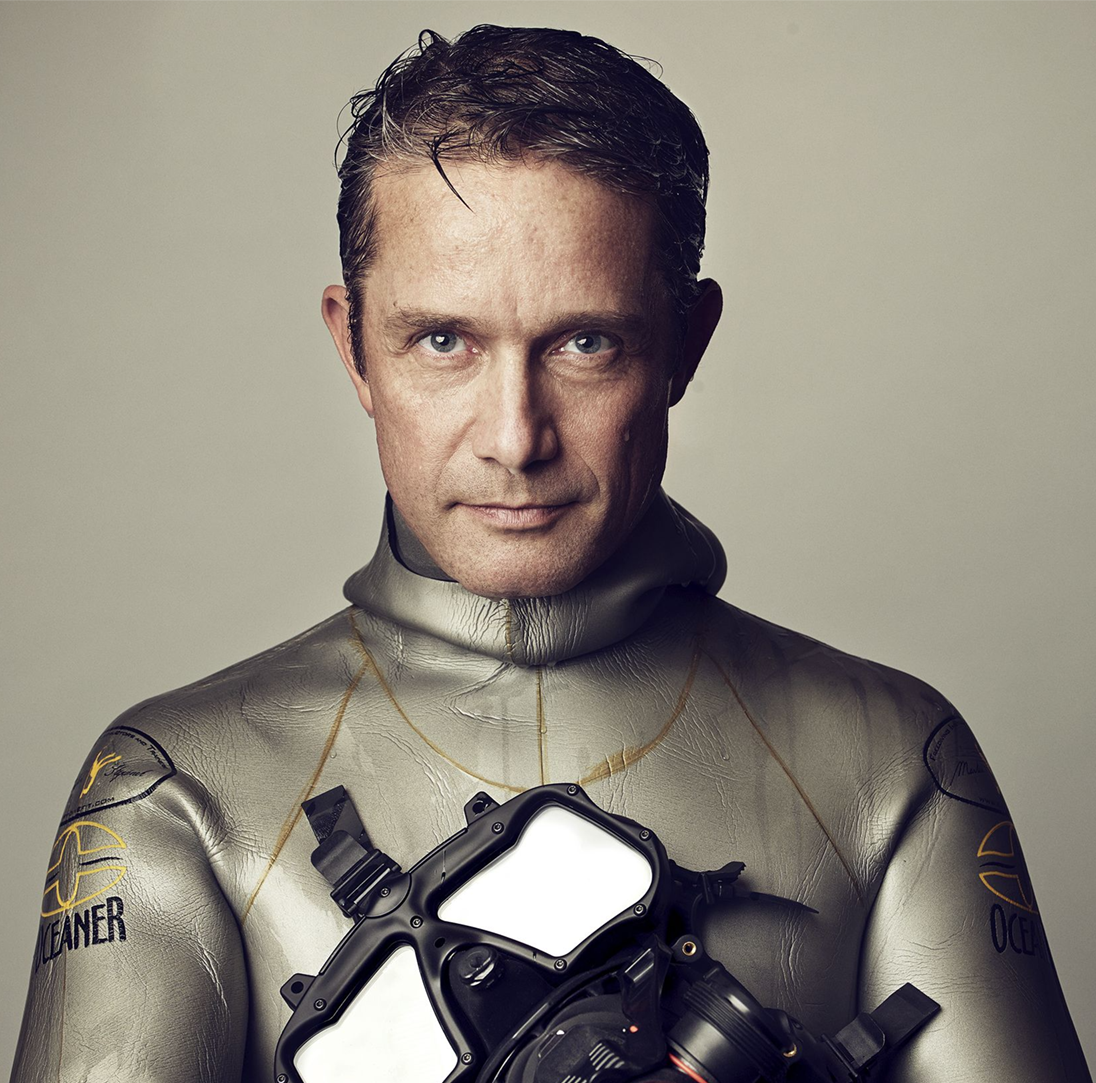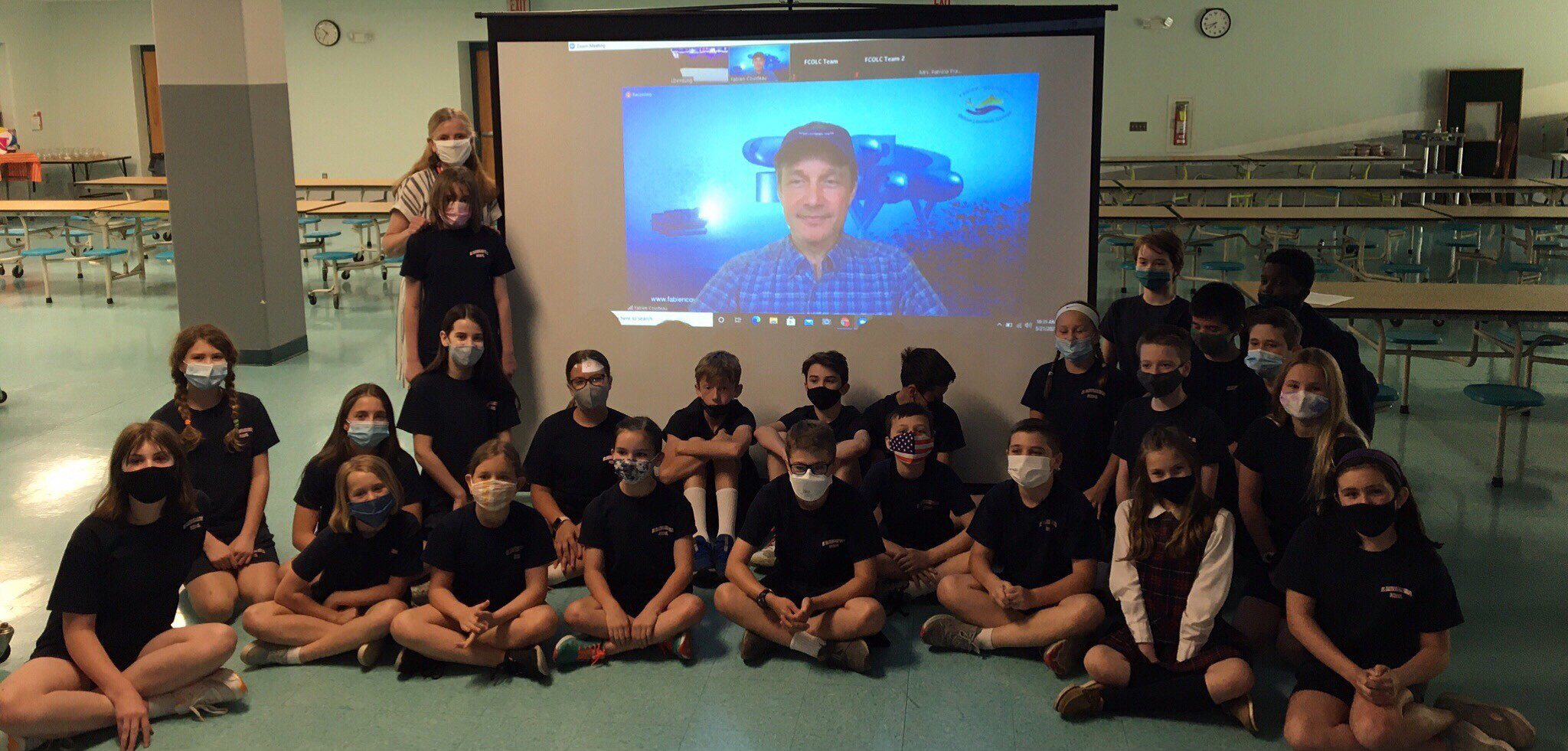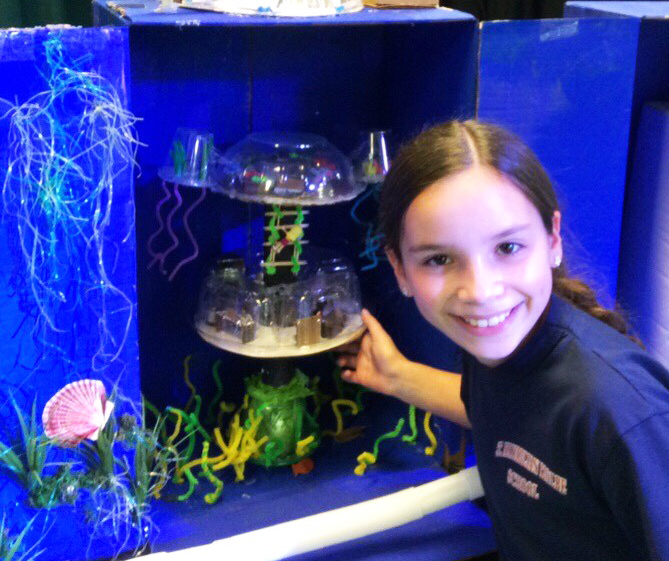Students at a parochial school in Chester County are plumbing the depths of science education and ecology, with a little help from a renowned oceanographer.
The fifth grade class at St. Maximilian Kolbe School in West Chester shared their models of underwater cities during a May 21 video call with Fabien Cousteau, an internationally acclaimed marine explorer and environmental advocate.
[hotblock]
Cousteau himself was born with salt water in his blood. As the grandson of famed French naval officer and ocean explorer Jacques Cousteau — whose documentaries revealed undersea life to generations of viewers — he learned to scuba dive on his fourth birthday. Cousteau continued his family’s legacy with several documentaries of his own, and even spent 31 days living and working at the Aquarius underwater marine laboratory in Florida.
In 2016, he founded the Fabien Cousteau Ocean Learning Center (FCOLC), which engages local communities throughout the world in marine restoration, conservation and research. Launched last July, the center’s flagship project, Proteus, is being developed as a kind of international space station located underwater.
That effort in particular intrigued St. Maximilian fifth grade instructor Peg Baran, who contacted FCOLC last August to obtain a Proteus poster for her classroom. For the organization’s acting interim director, Eleanor Angone, the simple request stirred up memories.
(Watch a video of a night dive by members of the Fabien Cousteau Ocean Learning Center team.)
“I am a former Catholic school educator,” said Angone. “When I saw this, I thought, she’s touching me to the point where I need to do something more for this woman.”

Oceanographer Fabien Cousteau met via Zoom with fifth-grade students at St. Maximilian Kolbe School in West Chester to discuss models for undersea cities, May 21. (Joe Pugliese/Courtesy of the Fabien Cousteau Ocean Learning Center)
Angone and her colleagues arranged for Cousteau to meet with the St. Maximilian students, who spent the 2020-21 academic year designing and re-designing – amid the COVID pandemic, no less – their own models of undersea cities as part of the school’s STEAM (science, technology, engineering, art and math) curriculum.
Cousteau was “quite impressed” by the results, which he said approached the prospect of living below sea level “in creative and innovative ways.”
“I am looking forward to sharing this with our engineers for Proteus, who will no doubt appreciate the perspectives,” he said. “Each model has merit in it approach and would be a great basis from which to work through some of the real-world challenges.”
For their part, students were “ecstatic” at the prospect of meeting Cousteau.
“I was floored!” said Chloe Hopkins, adding the prospect of having the famed oceanographer consider the students’ ideas made her feel “so important.”
The encounter was one for the books, said Madelyn Cohec.
“The night before … I recognized this would be something I would never forget,” she said, while classmate John Catter said he “felt like (they) were making history.”
The students’ efforts offered “hope for the future generations to do better than we have,” said Cousteau, whose organization is committed to “creating positive change in the world” to counter dire ecological trends.
A hands-on hope is at the heart of St. Maximilian’s curriculum, said principal Monica Malseed.
“We give our children a real understanding that they are the voice of Christ, the voice of God in this world,” she said. “God made us a little less than the angels to have dominion over the planet, and this project gave the kids a real understanding that this is our world, and we really are the caregivers and stewards.”

Fifth grade students at St. Maximilian Kolbe School in West Chester met with ocean explorer Fabien Cousteau via Zoom, May 21. (Photo courtesy of St. Maximilian School)
PREVIOUS: Philadelphia joins suburbs, lifts most COVID restrictions for churches
NEXT: Father Martin Okwudiba, ordained in Rome, is new priest for Phila.



Share this story